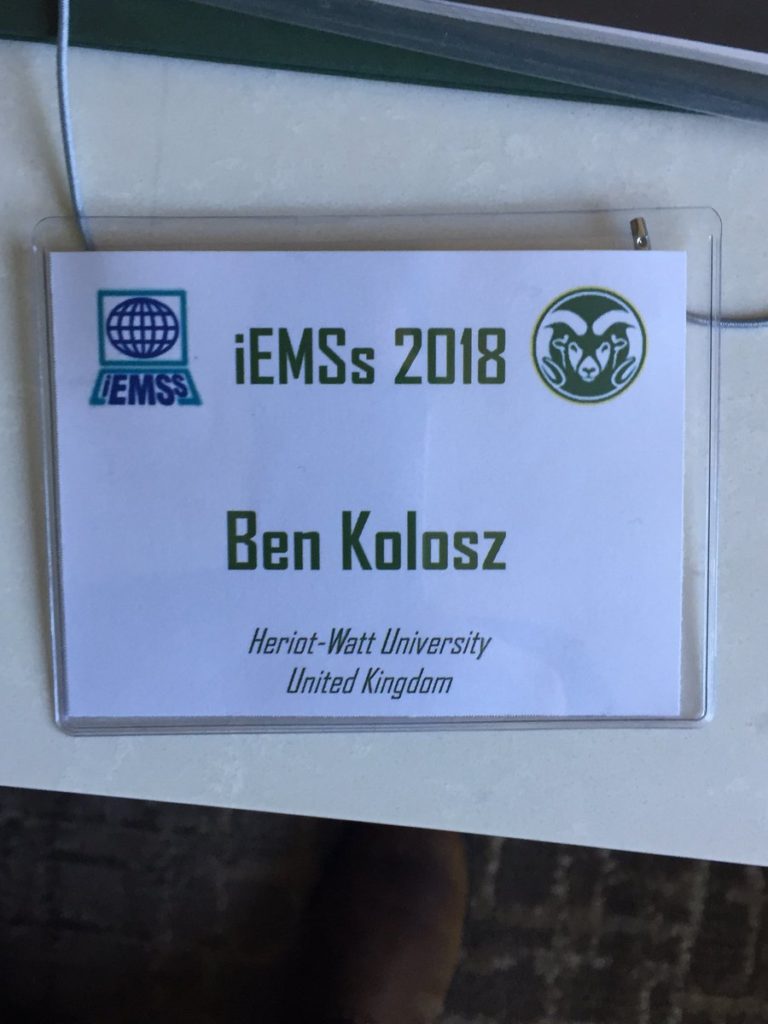
Lifecycle Assessment specialist Dr Ben Kolosz recently presented a paper at the inernational Environmental modelling and software conference in Fort Collins, CO which aims to assess the performance of alternative jet fuels using a unique probabilistic data fusion approach.
Dr Ben Kolosz: “This paper represents the second output of a close collaboration between the sustainability and social economic teams which aims to assist stakeholders of the aviation sector with a suite of methods that can be used to ascertain performance of different types of feed stocks.”
The conference proceedings will be available soon!
Abstract:
One of the most viable options to decarbonise the aviation industry is to operate existing engines and aircrafts through alternative jet fuels (AJFs). The key advantages of these fuels are that they work with existing engine technology, allowing a seamless transition between conventional petroleum jet fuels and more sustainable feedstocks. Lifecycle Assessment models have introduced datasets which attempt to estimate the emissions of AJFs’ process pathways from various feedstocks. To assist with inherent uncertainty in decision making and policy formation in AJFs, a more relativistic uncertainty in the performance of different technology solutions must be assessed to provide an impartial picture of technologies. Here, we propose an integrated multi-criteria decision analysisbased framework to improve performance uncertainty of competing AJF pathways. While existing studies tend to measure effectiveness via cost-benefit analysis or carbon reduction, our proposed framework will provide an in-depth understanding of competing technologies under four dimensions:
financial (e.g., capital cost, running cost, feedstock prices; and revenues), environmental (e.g., CO2 emissions savings), technical (e.g., technology maturity; transferability) and social (e.g., social acceptance; wealth and job creation). Compared to standard approaches, our framework can handle
data in different forms of uncertainty. Furthermore, we also discuss how different AJFs might be produced more effectively and stress practical points on the need for government and stakeholder integration on the large-scale production of AJFs. By focusing on motives, attitudes and decision making of experts, end-users and stakeholders – rather than merely the pure techno-economic or environmental aspects of AJFs’– this paper makes a new contribution to the field.
